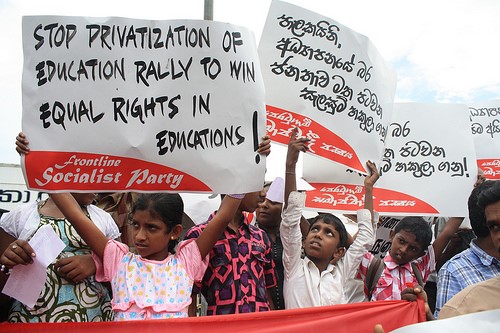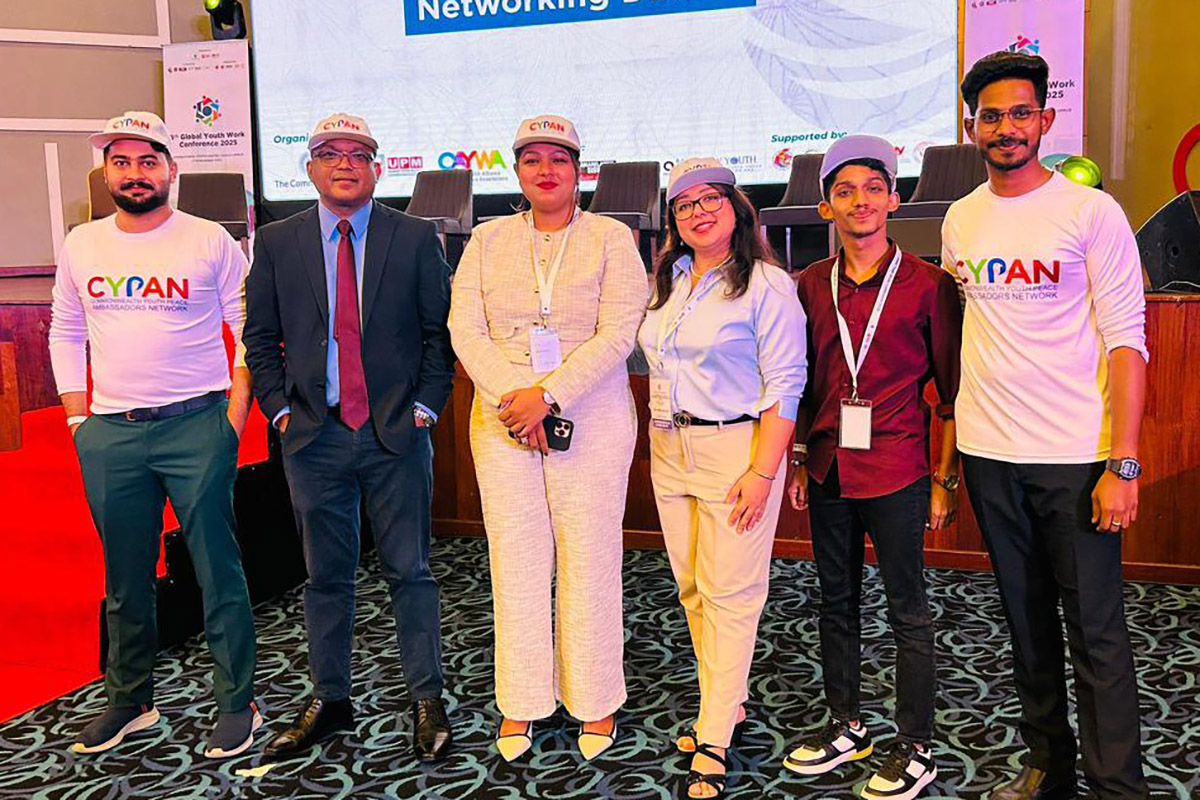“Private education: For profit? Or public good?”
July 30Public versus private medical education in Sri Lanka is a hotly-debated topic, writes Madusha Erandi Thanippuliarachchi, 24, a Commonwealth Correspondent from Sri Lanka. What is important to consider is whether one believes private education acts for profit or the public good.
Sri Lanka is blessed to have a free education system which has produced many eminent professionals. C.W.W Kannagara is known as the father of free education, and because of his work, many underprivileged citizens can now obtain a university-level education.
At the moment, however, a burning issue in the education sector of Sri Lanka is the privatization of medical education. Today, only six per cent of students are privileged to enter state universities based on merit. To compensate, private universities have been established across the country in fields such as management, finance, engineering, and law, to cater to students who are not admitted to state universities.
But medical education is a special case. What has been absent from the discussion about increased privatization is whether private medical education is reliable, and whether it suits the needs of a country like Sri Lanka.
Looking at developed countries like the USA and Japan, it’s evident that although private education does exist, it is subjected to strong regulatory policies and merit-based admissions. In many cases, merit is, rightly, the most critical factor.
One of the major arguments lobbied by Sri Lanka’s public system proponents is that the establishment of private institutions will impede the development of highly standard and the free health care system. Unfortunately, state universities do not have enough facilities and space to educate all individuals. But the state can provide financial aid and student loans to qualified individuals who can only attend private institutions.
If that model were to be instituted, however, society will be forced to change how it views public and private education. To date, there have been several effort to privatize medical education in Sri Lanka, but none of those efforts have brought change. That’s because protests against private education have been widespread over concerns about the de-standardization of free health care.
This is a thorny issue which needs to be resolved. Education, generally speaking, should not be profit-oriented. There is little doubt, however, that private education can act in the public interest as long as merit, and not money, is top of mind.
Photo credit: Madusha Erandi Thanippuliarachchi
…………………………………………………………………………………………………………………………
About me: I am determined and ambitious; ready to take up any challenge. A former journalist, I’m studying law at University of Colombo and doing freelance writing. I believe the youth is the fruitful future of any country and the positive anticipation of the developing world.
I love observing people, their nature and writing about them. I am a wannabe photographer. I swim, do athletics, and sing. I consider myself as a genuine social worker. Writing is simply my passion.
………………………………………………………………………………………………………………
Opinions expressed in this article are those of the author and do not necessarily represent the views of the Commonwealth Youth Programme. Articles are published in a spirit of dialogue, respect and understanding. If you disagree, why not submit a response?
To learn more about becoming a Commonwealth Correspondent please visit: http://www.yourcommonwealth.org/submit-articles/
………………………………………………………………………………………………………………







